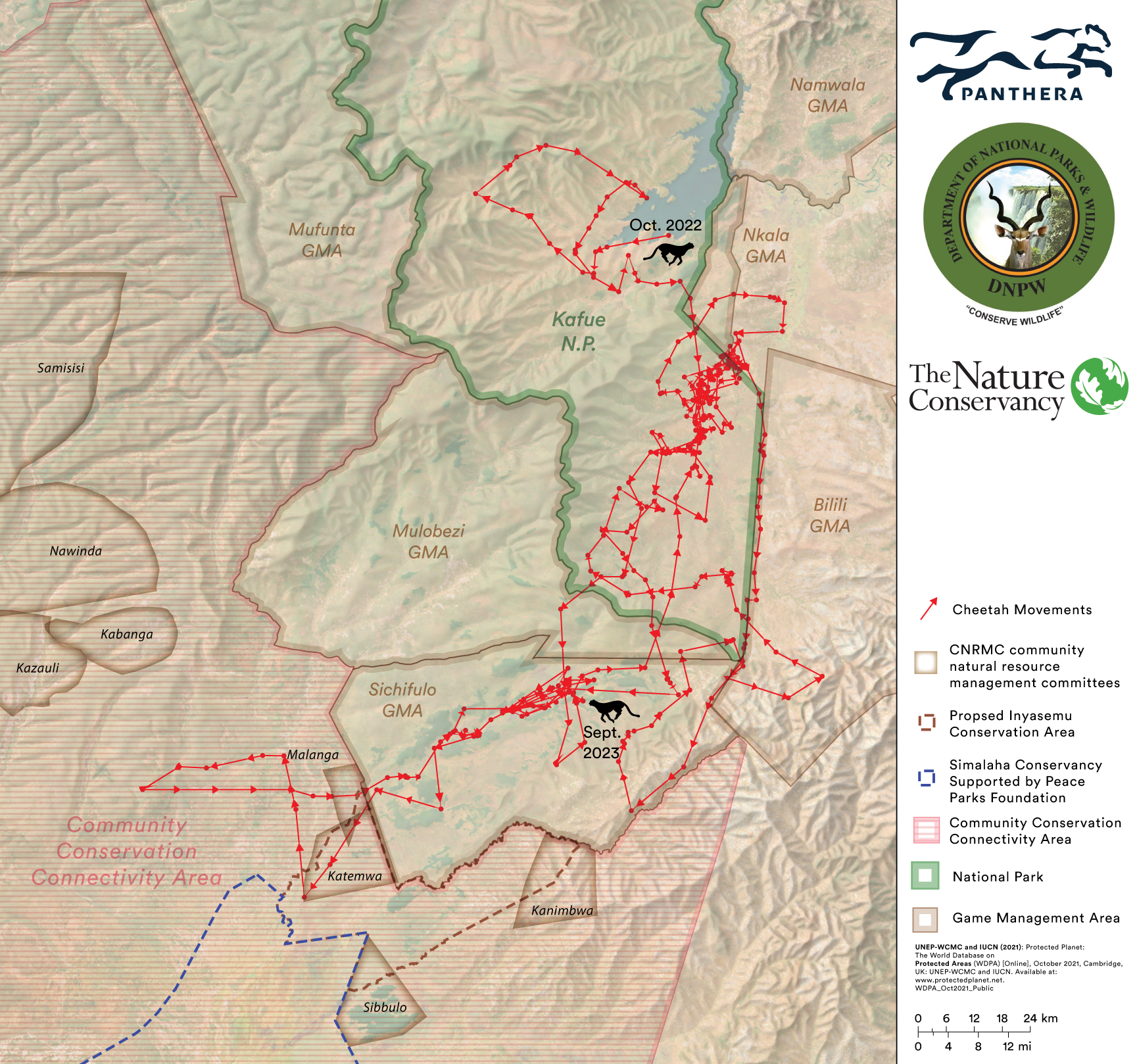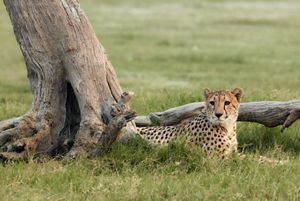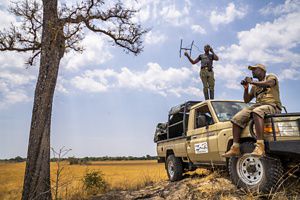
King the cheetah was on the move. And Panthera staff were ready. King—an almost 2-year-old male cheetah recently fitted with a tracking collar—was slipping into Sichifulo Game Management Area (GMA), one of nine community areas that ring Kafue National Park (KNP).

Panthera and Zambia’s Department of National Parks and Wildlife quickly activated a “Halo Protection Approach”: They cleared his path of deadly snares, deployed targeted foot patrols, and alerted area communities of his presence.
Although cheetah are known to attack goats and calves, King is an asset to the surrounding communities of KNP. Not only does Panthera have an eye on King’s movements to keep him safe, but a wildlife values program rewards communities for allowing predators to wander unharmed through their homelands. Participation in this program funds some of the community’s most urgent needs, such as school classrooms, solar panels, women’s enterprise schemes, and boreholes.
Over the course of eight months, King traveled about 1,127 kilometers through four GMAs, all across the southern half of KNP, and farther into the vast Kavango Zambezi Transfrontier Conservation Area, which links five countries in southern Africa.

Tracking King Panthera was able to track where King was traveling in this expansive area in and around Kafue National Park.
How Panthera Works
Panthera focuses on protecting wild cat populations, minimizing human-wildlife conflicts, and securing corridors that enable individual animals to disperse from high-quality habitats where numbers are stable or increasing and find the territory they need to survive.
TNC supports Panthera with vital funding and facilitates collaboration among partners to maximize a landscape-scale management approach in this region. In the Kafue landscape, Panthera provides focused monitoring of three collared cheetah and 11 collared lions. Although King travels alone, most cheetah travel in groups for a substantive part of their lives, be it a mother and cub group, a sibling group, or a male coalition. And, of course, lions travel in groups called prides, often made up of two or three females and their young, and accompanied at times by a pride male or a pride male coalition. By collaring one individual per focal group, Panthera provides halo protection for 49 or more big cats.


Sign up for Nature News
Get monthly conservation news and updates from Africa.
But Panthera’s focus isn’t 100% exclusive to cats: African wild dogs are also afforded the protection of the Halo approach. African wild dogs are endangered, with less than 7,000 individuals left in the wild. Like cheetah, African wild dogs roam over a large range and, as a result often run into snares or come into conflict with communities living at the edges of and outside protected areas. Providing wild dogs with protection at the scale at which they roam ensures the Greater Kafue Ecosystem (GKE) retains all members of its large carnivore guild—vital for the ecological integrity of the system itself, and contributing to regional and global biodiversity goals.
TNC and Panthera, together with other local organizations, are working at the landscape scale, which is the only way to protect big cats like King who move through the landscape’s porous boundaries. Panthera and partners are able to use the latest technology to monitor wildlife across the whole system and to use real-time evidence to adapt their activities. These tools include SMART (Spatial Monitoring and Reporting Tool), which allows enforcement patrols to coordinate and monitor one another’s efforts, and EarthRanger, a digital tracking platform that provides automated updates on the locations of all collared animals as they move across and in and out of the GKE.
A Holistic Approach with Partners
King’s long journey is not unique. Cheetah naturally have the lowest numbers of any big cat in Africa but range over the largest area. What is unique is that he is able to remain protected throughout his journey—whether he is in the national park, the GMAs, or other community areas.
His story illustrates the enormous potential—and need —to secure a wildlife corridor of staggering proportions, a swathe of connected conserved areas spanning from border to border across the wild heart of Zambia.
TNC’s Zambia Program, which grew from three to 23 staff members between early 2022 and late 2023, is playing a lead role in achieving this vision by coordinating and working with dozens of partners through intentional collaboration and integration. By providing resources and supporting strong partners like Panthera to play their unique part within a holistic vision for conservation, we can avoid duplication of efforts, scale up quickly, and get the most done—together.



